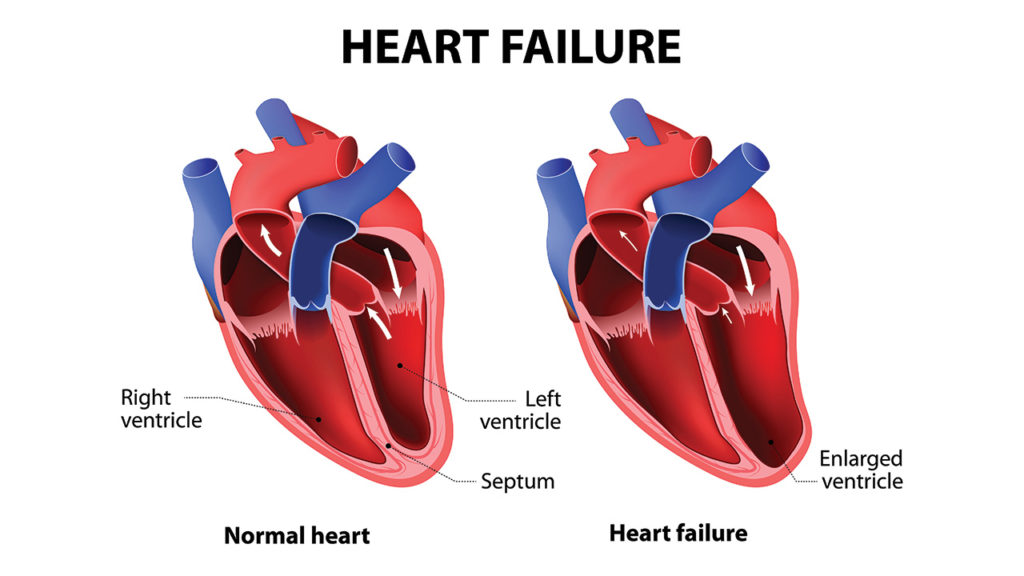Heart Failure
What is Heart Failure ?
Heart failure — sometimes known as congestive heart failure — occurs when the heart muscle doesn’t pump blood as well as it should. When this happens, blood often backs up and fluid can build up in the lungs, causing shortness of breath. Certain heart conditions, such as narrowed arteries in the heart (coronary artery disease) or high blood pressure, gradually leave the heart too weak or stiff to fill and pump blood properly.
Proper treatment can improve the signs and symptoms of heart failure and may help some people live longer. Lifestyle changes — such as losing weight, exercising, reducing salt (sodium) in your diet and managing stress — can improve your quality of life. However, heart failure can be life-threatening. People with heart failure may have severe symptoms, and some may need a heart transplant or a ventricular assist device (VAD). One way to prevent heart failure is to prevent and control conditions that can cause it, such as coronary artery disease, high blood pressure, diabetes and obesity.
Symptoms
- Persistent cough or wheezing with white or pink blood-tinged mucus
- Very rapid weight gain from fluid buildup
- Nausea and lack of appetite
- Difficulty concentrating or decreased alertness
- Chest pain if heart failure is caused by a heart attack
- A dry, hacking cough
- Shortness of breath with activity or when lying down
- Fatigue and weakness
- Swelling in the legs, ankles and feet
- Rapid or irregular heartbeat
- Reduced ability to exercise
- Swelling of the belly area (abdomen)
Cause
Causes of congestive heart failure include Coronary artery disease and/or heart attack. Cardiomyopathy (genetic or viral). Heart issues present at birth (congenital heart disease). Diabetes. High blood pressure (hypertension). Arrhythmia. Kidney disease. A body mass index (BMI) higher than 30. Tobacco and recreational drug use. Alcohol use. Medications such as cancer drugs (chemotherapy). Left-sided heart failure is the most common cause of right-sided heart failure. When your left ventricle isn’t working correctly, it allows blood to back up. At some point, this backup affects your right ventricle. Other causes include certain lung problems and issues in other organs.
Risk Factors
Risk factors for congestive heart failure include Being older than 65. Using tobacco products, cocaine or alcohol. Having an inactive (sedentary) lifestyle. Eating foods that have a lot of salt and fat. Having high blood pressure. Having coronary artery disease. Having a heart attack. Having a family history of congestive heart failure.

When to see a Doctor
If you have a diagnosis of heart failure and if any of the symptoms suddenly become worse or you develop a new sign or symptom, it may mean that existing heart failure is getting worse or not responding to treatment. This may also be the case if you gain 5 pounds (2.3 kilograms) or more within a few days. Contact your doctor promptly.
